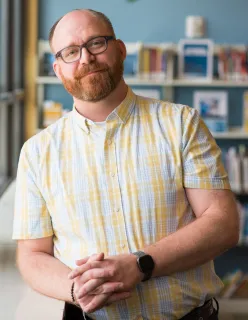Back To School
After 20 years, I went back to school. Outside of textbooks and scholarly articles, there are a number of books I’ve read in the last year that I wouldn’t have otherwise. Some of these I read prior to starting school, yet they still inform my learning about libraries.
If it were up to Brenna, Olivia, and Jane, three precocious readers who visit the West Pasco library who simply cannot understand why I haven’t ever read the "Narnia" books, this list would grow as high as Jack’s beanstalk. I currently have a stack of fantasy books on my desk that’s already toppled once. Once I get through those, along with the recommendations from the chorus, I may just have time to work on my Triple Lindy.
Molly Bang breaks it down in stunning detail, as she outlines the emotional impact of effective pictures in picture books. I read this for INFO260A: Programming & Services for Children, a great book in a great class.
I took a class over the summer covering the history of youth literature (INFO268). We were encouraged to choose a shared theme for the assignments throughout the semester, and I selected the depiction of Native Americans in children's books over 200 years. I read a lot of material with limited access. This book I pulled off the shelf at the library, and I'm glad I did. Bruchac tells the story of Sequoyah, creator of the Cherokee syllabary, teaching his son about his creation and, by extension, the value and significance of Indigenous voices.
I'm taking INFO271: The Fantasy Genre this semester in order to keep up with all the requests for books about dragons, princesses, wizards and Greek myths. I like fables and fairy tales very much, and there's been a lot of retellings in recent years of favorite stories and characters. This book is the start of a series called "The Norendy Tales" that DiCamillo calls an original fairy tale. I enjoyed the first one so much, I may have to read the rest even after the class wraps up.
I'm a little embarrassed by this one, but I'd be lying if I said I didn't rush to finish the book to see if Rosamund and the other princesses prevailed over Verna, the fairy godmother turned wicked witch and headmaster of Home Educational Academy (HEA), otherwise known as happily ever after. Spoiler alert: farting teenage boys with neon-colored hair may not be what they seem.
For INFO200: Information Communities, we selected a group of individuals who possessed similar information needs and utilized the same means of communication to share ideas and resources, and were tasked to research and apply the theories and principles of librarianship discussed in class to that group. I chose climate activists, who seemed to me to exhibit aspects of Radical Change Theory as described by Eliza Dresang. This book was both devastating and invigorating as a no-nonsense appraisal of current circumstances and the urgent need to adjust.
I'm a Ryan Dowd fan. I've learned a lot from this man. The end of homelessness is possible, and I believe libraries can help make that happen.
